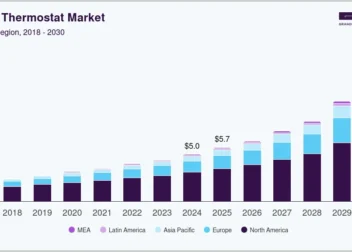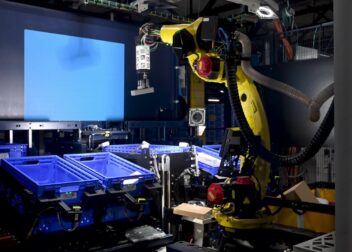Quantum Computing: The Next Internet-Sized Revolution?
The Dawn of a New Computing Era
Remember the early days of the internet? When dial-up connections screeched through phone lines and websites took minutes to load? Few people then could have predicted how profoundly the internet would transform our world. Today, we stand at a similar technological precipice with quantum computing – a breakthrough that promises to redefine what’s computationally possible. Unlike the gradual evolution of classical computing, quantum technology represents a fundamental paradigm shift that could unlock solutions to problems we currently consider unsolvable. As we venture into this brave new quantum world, one question looms large: Are we witnessing the next internet-sized revolution in human progress?

The Quantum Advantage: Beyond Binary
Breaking the Classical Barrier
Classical computers – from the smartphone in your pocket to the most powerful supercomputers – all operate on the same fundamental principle: processing information as bits (0s and 1s). These binary digits serve as the alphabet of computing, combining to form increasingly complex instructions and data. But this binary approach has limitations.
Quantum computing shatters these constraints by harnessing the bizarre properties of quantum mechanics. Instead of bits, quantum computers use qubits (quantum bits), which can exist in multiple states simultaneously thanks to a phenomenon called superposition. Imagine being able to check every possible combination in a combination lock at once rather than trying each sequence individually – that’s the quantum advantage in a nutshell.
Even more remarkable is entanglement, where qubits become interconnected in ways that have no classical equivalent. Einstein famously called this “spooky action at a distance,” and it allows quantum systems to perform certain types of calculations exponentially faster than classical computers.
The Power of Exponential Scaling
The computational power of quantum systems scales exponentially with each additional qubit. A 300-qubit quantum computer could theoretically represent more states than there are atoms in the observable universe. This exponential scaling is what gives quantum computing its revolutionary potential.
While today’s quantum computers remain relatively small (typically under 1,000 qubits) and error-prone, the race toward quantum supremacy – the point where quantum computers outperform classical ones at specific tasks – is accelerating. Google claimed this milestone in 2019, and though debates continue about what truly constitutes supremacy, the trajectory is clear: quantum capabilities are expanding rapidly.
Real-World Quantum Applications: Beyond the Hype
Quantum computing isn’t just theoretical – it’s beginning to solve real problems across numerous fields:
Transforming Scientific Discovery
In chemistry and materials science, quantum computers excel at modeling molecular interactions, potentially revolutionizing drug discovery and material design. Pharmaceutical companies like Roche and Biogen are already exploring how quantum algorithms can accelerate the identification of new therapeutic compounds. Meanwhile, researchers are using quantum simulations to develop more efficient batteries, solar cells, and nitrogen fixation processes that could address energy and food security challenges.
Reshaping Industries and Infrastructure
Financial institutions see quantum technology as a game-changer for risk analysis, portfolio optimization, and fraud detection. JPMorgan Chase, Goldman Sachs, and others have established quantum computing teams to prepare for this transition. In logistics, quantum optimization algorithms could revolutionize supply chain management, potentially saving billions in operational costs while reducing environmental impacts.
Cybersecurity faces both threats and opportunities from the quantum revolution. While quantum computers could eventually break current encryption standards, quantum cryptography offers protocols that are theoretically unhackable. This dual nature of computing innovation is driving massive investment in quantum-resistant security measures worldwide.
The Quantum Computing Ecosystem: Who’s Leading the Charge?
The race for quantum dominance involves a diverse ecosystem of players:
Tech Giants and Quantum Startups
Established tech companies like IBM, Google, Microsoft, and Amazon have invested billions in next-gen tech development. IBM’s quantum computers are accessible via cloud platforms, allowing researchers worldwide to experiment with real quantum hardware. Meanwhile, specialized startups like Rigetti, IonQ, and PsiQuantum are pursuing unique approaches to quantum computing architecture.
National Initiatives and Global Competition
Governments recognize quantum technology as strategically important. China has reportedly invested over $10 billion in its national quantum initiative. The US, EU, UK, Japan, and others have established multi-billion-dollar quantum programs. This emerging “quantum race” echoes earlier technological competitions, with potential implications for national security and economic leadership.
Challenges on the Quantum Horizon
Despite the excitement, significant obstacles remain before quantum computing can reach its full potential:
Technical Hurdles
Quantum systems are incredibly sensitive to environmental interference, making error correction one of the field’s greatest challenges. Researchers are working on ways to create more stable qubits and algorithms that can function despite some level of noise and decoherence. Building quantum computers that can perform reliable calculations at scale remains an engineering challenge of unprecedented complexity.
Talent and Education Gaps
The interdisciplinary nature of quantum technology – spanning physics, computer science, mathematics, and engineering – creates a significant talent bottleneck. Universities are rushing to establish quantum computing programs, but demand for quantum experts far outstrips supply. This skills gap could slow the industry’s growth unless addressed through coordinated education initiatives.
Preparing for a Quantum Future
The transition from classical to quantum computing represents a fundamental shift in human technological capability, potentially as transformative as the internet revolution. While we’re still in the early days of this journey – comparable perhaps to the ARPANET era of the internet – the acceleration of quantum capabilities suggests the timeline may be compressed.
For businesses, researchers, investors, and policymakers, the time to engage with quantum technology is now. Organizations that prepare for the quantum transition – by identifying potential use cases, building quantum literacy, and establishing partnerships within the quantum ecosystem – will be best positioned to leverage this emerging technology when it reaches maturity.
As individuals, understanding the basics of quantum computing allows us to participate in one of the most significant technological shifts of our lifetime. Whether you’re a student considering career paths, a professional looking to future-proof your skills, or simply a curious mind fascinated by the frontiers of human innovation, the quantum revolution offers exciting opportunities to explore.
The question isn’t if quantum computing will transform our world, but when – and whether we’ll be ready when it does. The next internet-sized revolution may already be here, one qubit at a time.



